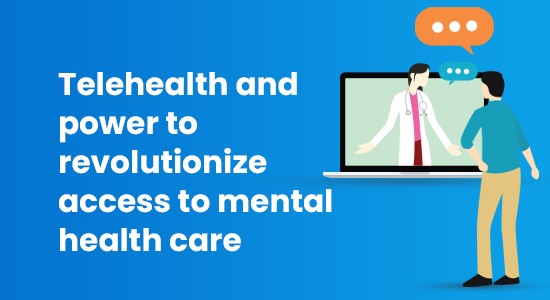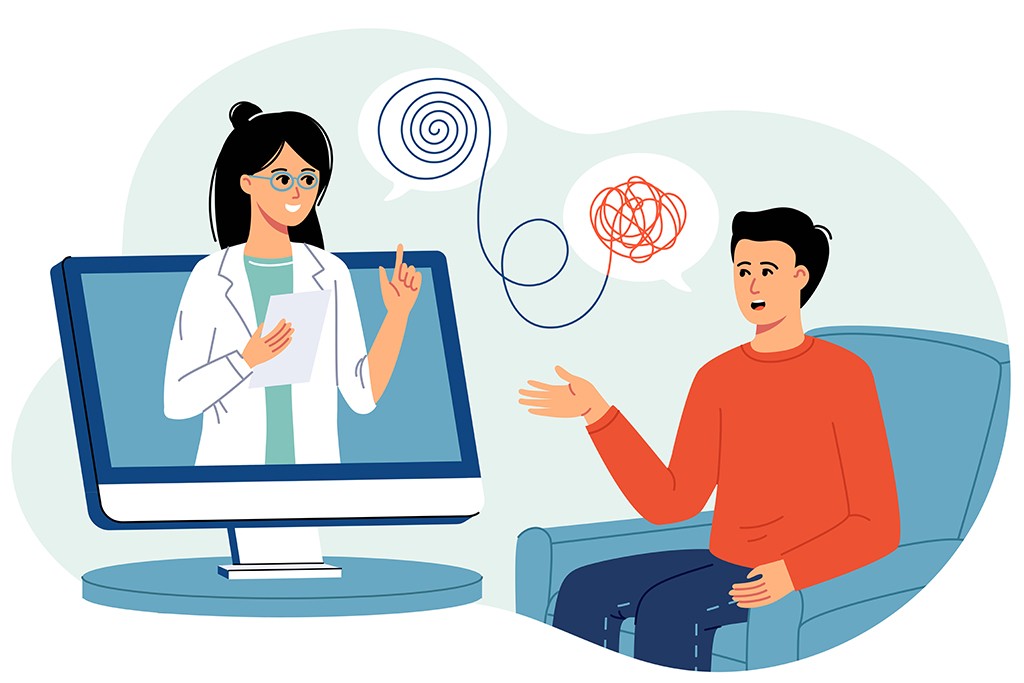Telehealth and power to revolutionize access to mental health care
Telehealth and power to revolutionize access to mental health care
In an era of outstanding technological developments, the combination of innovation and healthcare has yielded transformative solutions. In this time, telehealth has emerged as an effective tool that is capable of reshaping access to mental health treatment. Telehealth, a technological marvel, is rapidly changing the mental health care landscape. India is struggling with lack of human resources and a high treatment gap in the field of mental health. It can be expected that with the help of tele- health care, a large population can be covered with limited human resources. By utilizing the power of technology, telehealth is breaking down barriers and revolutionizing the way we connect with mental health care services.

Geographical and logistical barriers have long prevented individuals from receiving timely mental health care. Those living in remote or rural areas, as well as those facing physical limitations, have often found it challenging to access in-person treatment. Tele- health has been successful in making mental health care available to individuals who may have limited access due to the above mentioned issues. These people can now receive therapy and support from the comfort of their own homes by utilizing tele-health services. Telehealth offers greater flexibility in scheduling appointments. This can be particularly beneficial for individuals with busy lifestyles, work commitments, or caregiving responsibilities, as they can more easily fit tele-therapy and tele- psychiatric sessions into their routines. This eliminates the need to commute and wait in a physical waiting room, saving time and effort for both patients and clinicians. This convenience can encourage individuals to seek treatment and adhere to therapy sessions more consistently.
Conversations about psychological well-being are often met with silence or misunderstanding. Stigma surrounding mental health has long been a barrier to seeking the support and care that individuals need. Telehealth’s capacity to provide discreet, private, and anonymous access to mental health services has significantly contributed to reducing stigma around seeking help for mental health concerns. It helps individuals to seek help without confronting taboos. The privacy and anonymity afforded by telehealth empower individuals to prioritize their mental health without fear of being judged and stigmatized. As individuals become more accustomed to using technology for their well-being, the notion of seeking help for mental health issues becomes normalized. This shift in perception contributes to reducing the stigma surrounding mental health care. As telehealth continues to evolve and gain acceptance, it holds the promise of further dismantling stigma and fostering a society that values and prioritizes mental well-being.

Research studies have also shown that tele- health services have significantly contributed not only in managing psychiatristic conditions but also preventing hospitalizations. It has also found that people feel more comfortable in video-conferences compared to in-person sessions. With its flexibility and anonymity, telehealth stands as a transformative solution, offering personalized care and breaking down barriers that have hindered mental health support.


